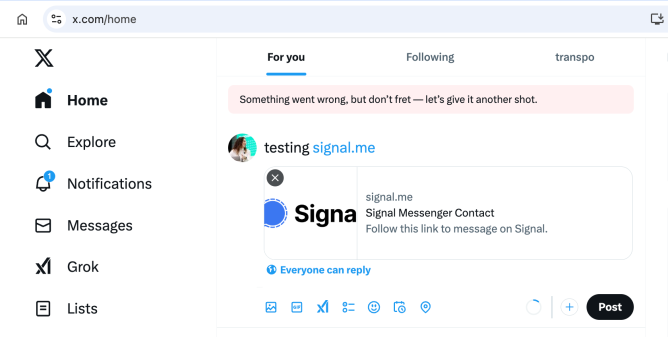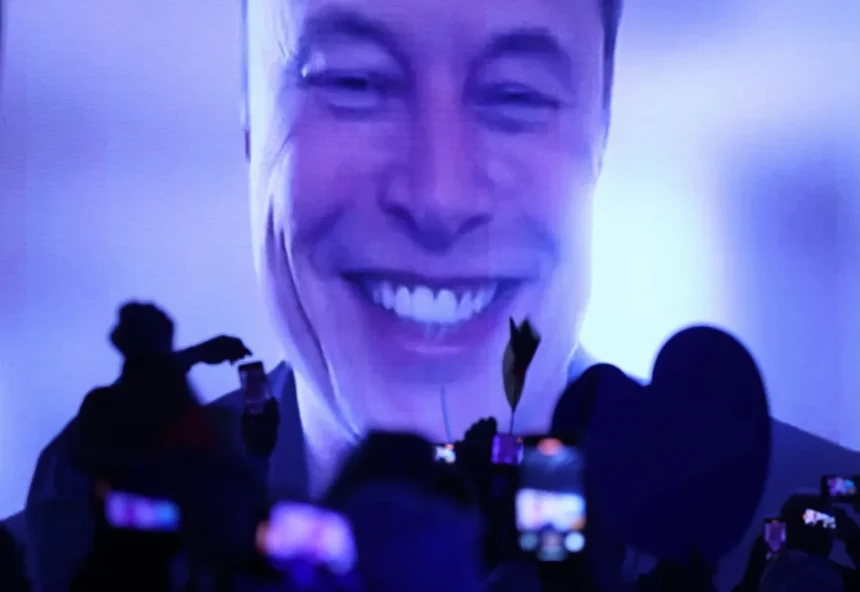Elon Musk’s X (formerly Twitter) has reportedly begun blocking links to Signal.me, a URL shortener used by the encrypted messaging platform Signal. This tool allows users to share a direct link for secure contact through Signal, a service widely relied upon for private communication. The blocks, which affect public posts, direct messages, and even profile pages, were first noticed by the blog Disruptionist.
The timing of this move coincides with a sweeping government restructuring effort led by the Department of Government Efficiency (DOGE), which has resulted in mass layoffs across multiple federal agencies, including NASA and the Department of Education. With nearly 10,000 federal employees already dismissed and entire agencies like USAID facing shutdowns, many workers have turned to Signal as a secure means of communication—whether for coordinating next steps or exposing internal concerns.

X’s Restrictions on Signal Links
Users attempting to share Signal.me links on X have encountered error messages preventing their posts from being published. Public posts containing these links trigger a vague response stating, “Something went wrong, but don’t fret – let’s give it another shot.” Meanwhile, direct messages with the same links fail to send, displaying a message that reads: “This request looks like it might be automated. To protect our users from spam and other malicious activity, we can’t complete this action right now. Please try again later.”
The restriction raises concerns about whether X is deliberately targeting certain forms of communication, particularly those used for secure messaging. While the platform has implemented link-blocking in the past to combat spam and malicious activity, critics argue that Signal—a platform widely regarded for its privacy protections—is an unlikely candidate for such measures.
A Clash with Musk’s Free Speech Stance?
Elon Musk has long portrayed himself as a champion of free speech, frequently criticizing censorship on social media platforms. However, his leadership at X has been marked by actions that contradict these claims. Musk has been accused of silencing critics, restricting accounts that challenge his decisions, and now, possibly interfering with secure communication tools used by government workers.
The decision to block Signal.me links adds to growing concerns about how X’s policies are being shaped under Musk’s ownership. Some speculate that these restrictions may be politically motivated, given the broader efforts by DOGE to dismantle federal agencies and reduce government spending. If federal workers are using Signal to coordinate resistance or whistleblowing efforts, restricting their ability to share contact links on X could serve as a strategic roadblock.
Broader Implications
This development also highlights the increasing tension between centralized social media platforms and decentralized or encrypted communication tools. Signal has long been a go-to choice for journalists, activists, and individuals who prioritize privacy. If X continues to limit access to secure messaging tools, it could push users toward alternative platforms or even strengthen calls for decentralized, censorship-resistant social media networks.
While X has not officially commented on the decision to block Signal.me links, the implications are significant. If this move is part of a broader effort to control the flow of information, it raises serious questions about the future of digital free speech and privacy in an era where powerful individuals hold sway over major communication channels.
As the situation unfolds, affected users and privacy advocates will be watching closely to see whether X reverses course—or whether this is just the latest step in an ongoing pattern of selective content restriction.










